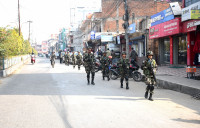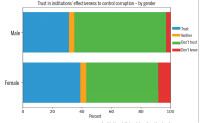National
ICIMOD warns glacier loss already extreme at 2°c, urges urgent fossil fuel phaseout
New study shows only 25% of Hindu Kush Himalaya glacier mass may remain at 2°c.
Post Report
The International Centre for Integrated Mountain Development (ICIMOD) has raised alarm over the latest scientific projections showing devastating glacier loss even at 2°C of global warming, urging immediate and deep cuts in fossil fuel emissions to preserve South Asia’s critical water sources.
ICIMOD highlighted findings from a new international study published in Science, which shows that the world is currently on track to warm by 2.7°C under existing climate policies. At that level, only 24% of global glacier mass would remain. The Hindu Kush Himalaya region — where glaciers sustain river basins relied upon by over two billion people — would retain merely 25% of its 2020 glacier volume at 2°C.
“These new projections confirm the extreme sensitivity of our region’s glaciers,” said ICIMOD in a statement. “The glaciers of the Hindu Kush Himalaya are disappearing at an alarming rate, and the consequences will be felt far beyond the mountains — through water shortages, reduced agricultural productivity, and greater disaster risks.”
The study, led by a team of 21 scientists from ten countries using eight glacier models, found that staying close to 1.5°C could preserve 40–45% of glacier ice in the Himalayas and Caucasus, and at least some ice in all major glacier regions globally — including 20–30% in the most sensitive areas like Scandinavia, the Alps, and the Rockies.
ICIMOD emphasised that the new data underlines the urgency of meeting the 1.5°C target through rapid decarbonisation. “A transition away from fossil fuels is no longer optional — it is essential for the survival of our mountain ecosystems and the communities that depend on them,” the centre said.
Glaciers in Central Asia — including Tajikistan, where the first UN global conference on glaciers opened Friday — would also fare much better at 1.5°C, maintaining 60% of 2020 ice levels, compared to just 30% at 2°C.
ICIMOD reiterated calls for global solidarity, climate finance, and urgent adaptation measures to protect vulnerable mountain regions and downstream communities.
“This is a defining moment,” the centre said. “Every fraction of a degree matters. The decisions we make now will shape the future of our glaciers and the water security of billions.”




 20.96°C Kathmandu
20.96°C Kathmandu














